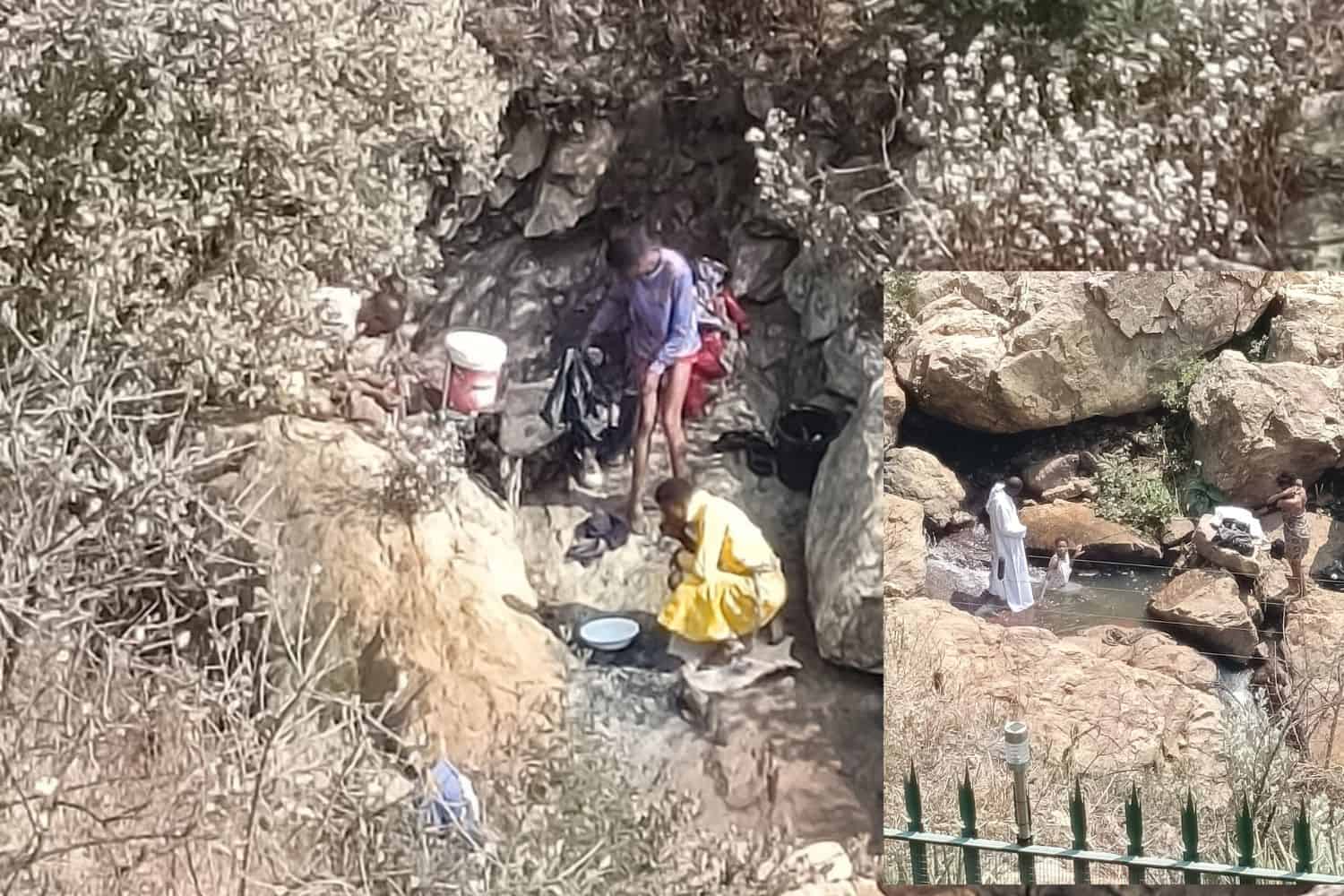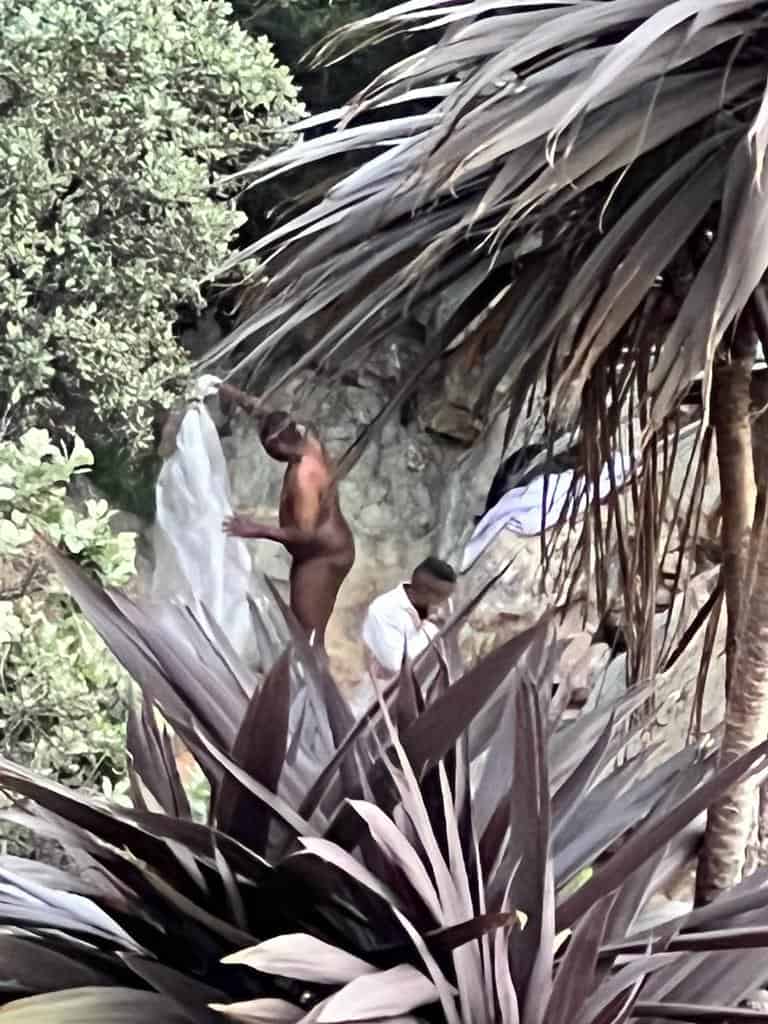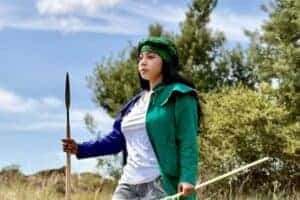Johannesburg City Parks and Zoo is reviewing public space bylaws and drafting new nature reserve regulations.

Warning: This article contains images and videos of nudity. Reader discretion is strongly advised.
Religious and cultural groups conducting rituals in Johannesburg’s nature reserves are raising concerns about safety and the environment among residents.
The activities include nudity, fire-making, the slaughtering of animals, and overnight ceremonies that have been ongoing for more than two decades.
Johannesburg City Parks and Zoo (JCPZ) has acknowledged receiving complaints about unauthorised activities, including fire hazards, littering, nudity, noise, and the slaughtering of animals.
Weekend disruptions and safety hazards
A resident living adjacent to Bert Close Park in Roodepoort told The Citizen that the problems intensify on weekends when large groups arrive by bus and taxi for religious ceremonies.
These gatherings reportedly often begin before sunrise and continue through Sunday night, creating noise that echoes between mountains and disturbs nearby residential areas.
“So they get there, and some of them can come there around half past five in the morning, before the sun is up, to get themselves settled, and once the sun starts rising, they can start making their noise, banging their drums, whistles, and screaming and chanting,” said a resident from Helderkruin.
The resident said the chanting is worsened by the echo from the mountains.
WATCH: Chanting at the park during a ceremony
Furthermore, fire-making poses the most serious safety risk. Parks burn down multiple times annually when fires spread beyond control during windy conditions.
“These guys, when they make fires in this park, this park burns down three times a year,” the resident explained. “So what happens, the section will burn down, the fire brigade will come and extinguish a section of the park’s fires, and then another group will make a fire again.”
The resident alleged that a recent incident resulted in property damage when flames spread up a mountain and burned down a house.
“They were making fire down at the stream because they get into the water naked and [sometimes] with all their clothes on, with their white clothes on, and then they get cold, and then they sit by their fires. So the wind was blowing, and they were making a fire, so the fire broke out, and it went up the mountain and actually burned the guy’s house down,” he explained.
WATCH: Video of the house burning
ALSO READ: Lion captured in Giyani area and relocated to Kruger National Park, two others roaming
Environmental and community impact
The ceremonies leave lasting environmental damage. Groups allegedly leave behind ritual cloths, clothing, papers and plastic waste along riverbanks.
One of the community members said that as residents, they regularly pool money to hire cleaning crews.
The activities violate multiple park regulations. Park signs and bylaws prohibit fires, swimming, fishing, loud music and nudity.
However, participants regularly enter water bodies naked and conduct overnight rituals involving candle-burning.
“During the week, you’ll find some sangomas and different religious groups. I think the sangomas get paid by these different groups and different people to come and perform their rituals in the river,” the resident said.
Warning: Picture contains nudity

He added that when the religious and spiritual groups perform their business, they also slaughter goats and chickens.
ALSO READ: ‘No cause for concern’ – Kruger National Park confirms anthrax cases in animals
Enforcement challenges
Despite numerous complaints and interventions over the years, the residents have largely given up hope for a permanent solution.
Johannesburg City Parks and Zoo spokesperson Jenny Moodley said the organisation takes these matters seriously.
She said rangers patrol alongside the Johannesburg Metropolitan Police Department (JMPD), although most patrols are random and reactive.
“JCPZ is aware of concerns about unauthorised activities at Bert Close Nature Reserve, including fire hazards, littering, nudity, noise and the sacrificing of animals,” Moodley confirmed.
The city faces enforcement challenges as groups return shortly after being removed. Residents report calling the metro police up to 10 times per weekend with limited success.
“Metro will still come out if you phone them. We phone them on the weekends about 10 times. Then sometimes they’ll come,” the resident said. “So they will come and chase the guys away, but an hour later those guys will just sit around, wait for them to leave, and then they’ll come back.”
Cultural sensitivity and legal framework
The city acknowledged that public spaces are shared resources often used for cultural and religious rituals, particularly near water bodies.
Moodley said the city engages sensitively with groups while advising them to comply with bylaws.
“While these practices are respected, challenges arise when they conflict with safety regulations, conservation rules or residents’ rights,” Moodley explained.
The city’s current bylaws prohibit several activities within public open spaces.
According to the bylaws, individuals cannot act in a dangerous manner, cause a nuisance or behave indecently.
“No person may, within a public open space, bathe, wade, or swim in or wash him- or herself, an animal or any object, including clothing, in any water body.”
Furthermore, specific prohibitions include making fires except in designated facilities, camping and using sound equipment.
ALSO READ: Joburg residents urged to exercise caution as rainy weather hits Gauteng
Ongoing solutions
Johannesburg City Parks and Zoo is reviewing public space bylaws and drafting new nature reserve regulations.
The review process, which closes on 27 September 2025, includes consultations with residents, councillors and traditional leaders.
“Through stronger bylaws, education, and collaboration with communities and partner institutions, JCPZ aims to ensure that our open spaces remain inclusive, safe and ecologically healthy,” Moodley said.
The organisation encourages all users to act responsibly while respecting both cultural practices and environmental protection needs.
The Citizen has reached out to traditional experts for comment; this article will be updated once their comments are received.
READ NEXT: Bid to digitise cemetery records in Joburg welcomed
Support Local Journalism
Add The Citizen as a Preferred Source on Google and follow us on Google News to see more of our trusted reporting in Google News and Top Stories.








